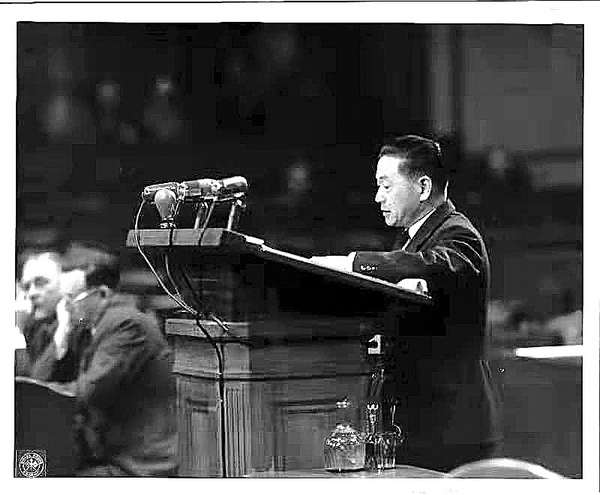

For a month between March 12 and April 12, 1946, Morrow and David Nelson Sutton, US associate prosecutor and assistant to the Chinese Division of the IPS, were in China on a fact-finding mission. They were guided in this effort by Hsiang Che-chun (Xiang Zhejun), who had arrived in Tokyo in early February as head of the Chinese prosecution team and was behind Morrow's thwarted attempt to pursue the war crime.
On April 23, Sutton submitted to Keenan his final report, titled Report from China: Bacteria Warfare.
For Wang, her encounter with the Sutton report at the National Archives in Maryland in October 2010 was overpowering. "There I sat, amid the hushed quietness of the room, with tears running down my cheeks. Laid out in front of me were documents prepared by the Chinese prosecution for pursuing the Japanese BW war crime responsibility-they, and those before them, had really tried to bring those monsters to the bar. And I saw my hometown, listed in the documents as one of the places the Japanese had attacked with plague."
Among other things, enclosed in Sutton's report to Keenan is a report written by Peter Z. King (Jin Baoshan), a public health official with China's Nationalist Government, in late 1941. Citing the repeated appearances of low-flying Japanese aircraft dropping considerable quantities of "wheat grains, pieces of paper, cotton wadding and some unidentified particles" and the subsequent outbreak of bubonic plague in those areas, mostly plague-free until then, the report established a direct link between the four plague outbreaks and their subsequent spread in the provinces of Zhejiang and Hunan in 1940 and 1941 with Japan's biological warfare.
King's report was widely distributed in the spring of 1942 when China's foreign ministry notified all Allied embassies and legations that Japan's germ attacks were "ruthlessly in violation of the principles of international law and the principles of humanity". That protest fell on deaf ears.
During Sutton's trip to China, he interviewed King and, at his urging, spoke to W. I. Chen, a Chinese epidemiologist, and Robert Pullitzer, a plague prevention expert. Both were on site in Changde, Hunan province, soon after the plague started in November 1941 and wrote investigative reports corroborating King's claim. And both, like King, were more than willing to testify in court.
None was given the chance. In the last sentence of his report's covering letter to Keenan, Sutton wrote: "As the case now stands, in my opinion the evidence is not sufficient to justify the charge of bacterial warfare."
Wang was not impressed. "If this is not sufficient evidence, then the Chinese prosecution should be facilitated with access to chief suspects, instead of being withheld all information the US army investigators had been accumulating from Ishii and his associates," she said. "The Chinese prosecution had managed to come up with no less adequate proof for an indictment compared with other cases ongoing at the court. The nature of the crime deserves a thorough investigation."